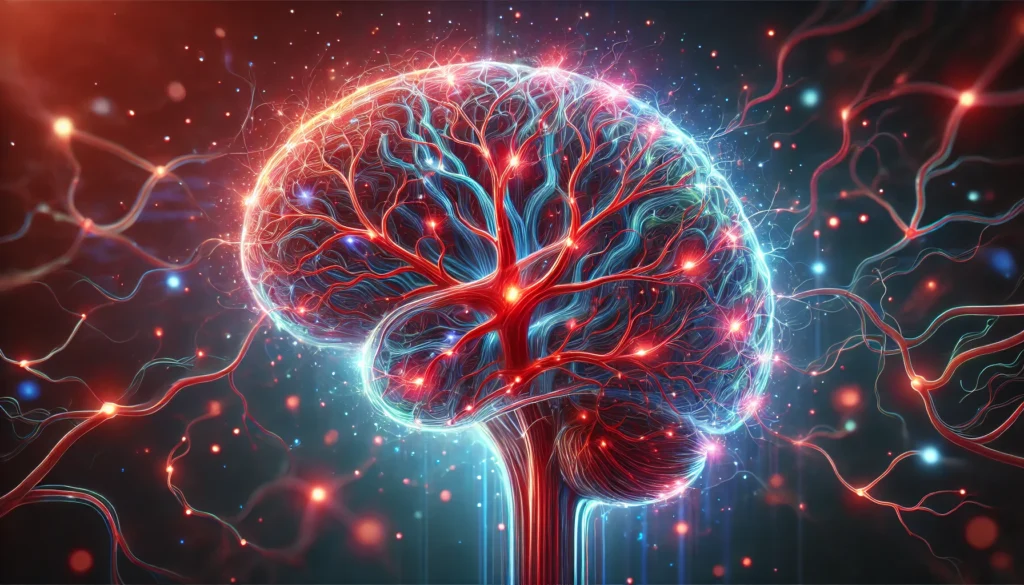Dementia is a complex condition. It affects millions worldwide, impairing memory and cognitive function.
Medications play a crucial role in managing its symptoms. They can enhance quality of life for those living with this condition.
However, understanding these medications can be challenging. They range from drugs that slow cognitive decline to those that manage associated symptoms.
This article aims to demystify the latest dementia medications available. It provides a comprehensive guide to their uses, side effects, and the science behind them.
We’ll delve into the four main types of anti-dementia drugs. We’ll also explore the concept of ‘drug of forgetfulness’ and the debate surrounding memory-enhancing medications.
We’ll address common concerns and questions. This includes the potential side effects and the importance of personalized medicine in dementia treatment.
Whether you’re a health and wellness coach, a science journalist, or a biohacker, this article is for you. It’s a reliable source of information, offering practical advice and insights based on the latest scientific research.
Join us as we navigate the complex world of dementia medications. Let’s enhance our understanding and optimize cognitive health.
You may also like: Top Memory Supplements to Combat Dementia
The Burden of Dementia and the Role of Medications
Dementia is a significant global health challenge. Its impact reaches beyond the individual, affecting families and societies.
Worldwide, over 55 million people live with dementia. This number is growing rapidly due to aging populations.
Symptoms of dementia include memory loss, confusion, and mood changes. These symptoms can be distressing and disrupt daily life.
Medications for dementia aim to manage these challenging symptoms. They do not cure dementia but can improve quality of life.
The role of these drugs is essential for slowing symptom progression. Key functions of dementia medications include:
- Enhancing communication by preventing the breakdown of neurotransmitters
- Managing behavioral changes such as anxiety and aggression
- Stabilizing cognitive function to delay symptom escalation
Different types of dementia, like Alzheimer’s or vascular dementia, require specific treatments. Personalized medicine is crucial.
Despite their benefits, dementia medications can have side effects. These need careful management to maximize treatment success.
Research into dementia treatments continues to evolve. Scientists are exploring new ways to help those living with this condition.
Ultimately, dementia medications are part of a broader care strategy. They complement therapies, lifestyle changes, and support for caregivers.
Understanding the role and limitations of these medications is key. It’s about providing hope and improved outcomes for patients and their loved ones.
Types of Dementia Medications
Dementia medications fall into several categories. These categories focus on managing different symptoms and stages of the disease.
The main types include cholinesterase inhibitors and NMDA receptor antagonists. These drugs target specific cognitive issues seen in dementia.
Besides these, some medications are used off-label. These can help with associated symptoms like mood swings or anxiety.
Cholinesterase Inhibitors
Cholinesterase inhibitors are often prescribed for mild to moderate Alzheimer’s disease. They work by preventing the breakdown of acetylcholine. This neurotransmitter is vital for memory and cognition.
As dementia progresses, acetylcholine levels drop. By slowing its breakdown, these drugs can temporarily improve or stabilize symptoms. Common cholinesterase inhibitors are Donepezil, Rivastigmine, and Galantamine.
Each of these medications has unique dosing and administration methods:
- Donepezil: Typically taken once daily, can be used for all stages of Alzheimer’s.
- Rivastigmine: Available in pill or patch form, suitable for those who struggle with swallowing.
- Galantamine: Also aids in releasing more acetylcholine by binding to nicotinic receptors.
While helpful, these medications can cause side effects. Common issues include nausea, diarrhea, and muscle cramps.
Despite their limitations, cholinesterase inhibitors remain a cornerstone of dementia treatment. They offer meaningful benefits for many patients.
Memantine (NMDA Receptor Antagonists)
Memantine is used primarily for moderate to severe Alzheimer’s cases. It operates differently than cholinesterase inhibitors. Memantine targets glutamate activity, a key player in memory function.
Excessive glutamate can lead to cell damage. Memantine helps by regulating glutamate’s effects at NMDA receptors. This regulation aids in protecting brain cells from overexcitation.
Memantine offers potential benefits for cognition and daily activities. It’s often prescribed when cholinesterase inhibitors alone are insufficient.
Some patients use memantine in combination with other drugs. This strategy can improve overall effectiveness. For example, pairing Memantine with Donepezil may enhance outcomes.
Memantine’s side effects are generally mild. They include dizziness, headache, and constipation.
Its unique action makes it a valuable addition to dementia therapy. The combination of treatments can optimize patient care.
Other Medications and Off-Label Uses
Other drugs can help manage symptoms beyond memory issues. Antidepressants are used for mood disturbances common in dementia.
Antipsychotics sometimes address severe behavioral problems. These may include aggression and hallucinations. However, their use is typically short-term due to potential risks.
Additionally, some medications are explored off-label. For example, anxiety in dementia may be treated using certain drugs intended for other conditions.
Such off-label uses require careful consideration. The benefits must outweigh potential side effects.
Continuous assessment by healthcare providers ensures the safe and effective use of these medications. This comprehensive approach supports overall patient well-being.

Commonly Prescribed Dementia Medications
Dementia affects millions globally, demanding effective treatment strategies. Several medications are commonly prescribed to help manage its symptoms. Each drug has specific uses, benefits, and potential side effects.
The most frequently prescribed dementia medications include Donepezil, Galantamine, and Rivastigmine. These drugs are often the first choice in treating Alzheimer’s disease. Their primary role is to enhance cognition and maintain daily function.
Donepezil is approved for all stages of Alzheimer’s. This makes it a versatile option for early to advanced cases. It’s typically well-tolerated, though some experience gastrointestinal issues.
Galantamine works similarly but also interacts with nicotinic receptors. This interaction potentially boosts cognitive effects. Galantamine requires careful dosage adjustments based on patient response.
Rivastigmine stands out for its multiple forms. Available as pills or patches, it offers flexible administration. The patch form minimizes gastrointestinal side effects, benefiting sensitive patients.
Here’s a concise list highlighting key points:
- Donepezil: Used for mild to severe Alzheimer’s, usually causes mild gastrointestinal discomfort.
- Galantamine: Enhances cognitive function, needs dose adjustments, potential for skin reactions in patch form.
- Rivastigmine: Available in pill and patch form, offers administration flexibility, lessens gastrointestinal upset when used as a patch.
In addition to these medications, Memantine is frequently prescribed. It’s particularly useful for moderate to severe dementia stages. Memantine’s unique mechanism complements other treatments by regulating glutamate activity.
Patients may also be prescribed combinations for optimal effect. Combining Donepezil with Memantine, for instance, can amplify benefits.
These medications represent a central pillar in managing dementia’s challenges. Their thoughtful application can significantly improve patient quality of life. Constant evaluation ensures treatments remain effective and safe. Regular adjustments tailored to individual needs are essential for best outcomes.
Side Effects and Management
Dementia medications, while beneficial, can lead to side effects. These effects vary by drug class and individual response. Understanding and managing them is crucial for treatment success.
Cholinesterase inhibitors often cause gastrointestinal issues. Nausea and diarrhea are common complaints among users. Adjusting the dose or administration time can help mitigate these symptoms.
Memantine’s side effects are generally milder. However, some patients experience dizziness or headaches. These issues are typically temporary and resolve over time.
It is important for caregivers and patients to monitor reactions. Regular communication with healthcare providers aids in timely adjustments. These adjustments might involve dosage changes or exploring alternative therapies.
Here’s a concise list of common side effects:
- Cholinesterase Inhibitors: Nausea, diarrhea, muscle cramps.
- Memantine: Dizziness, headache, confusion.
- Antipsychotics: Increased risk of stroke, sedation, weight gain.
- Antidepressants: Insomnia, dry mouth, blurred vision.
Management strategies vary depending on the severity of side effects. Mild issues often resolve with simple adjustments. More severe reactions may require switching to different medications.
Ultimately, effective side effect management enhances treatment adherence. Patients benefit from improved quality of life and symptom control. Regular reviews and personalized care plans are crucial for the best results.
Emerging Treatments and Research
Dementia research is advancing, offering hope for new treatments. Novel approaches aim to target the disease’s underlying mechanisms. These advancements could transform dementia care in the near future.
One promising area is immunotherapy. Researchers are exploring how the immune system might be leveraged to combat dementia. Early trials show potential in reducing harmful brain proteins.
Gene therapy is another exciting field. Scientists are investigating ways to modify genes linked to dementia risk. This could lead to personalized treatments based on an individual’s genetic profile.
Additionally, innovative drug delivery systems are in development. These methods aim to enhance medication effectiveness with fewer side effects. Such progress may improve cognitive outcomes for dementia patients.
Continuous investment in research is vital. It not only fosters the discovery of novel therapies but also enhances our understanding of dementia. As new treatments emerge, they offer renewed hope for patients and caregivers alike.

Enhancing Cognition: Beyond Traditional Medications
Exploring cognitive enhancement requires a broader view than just medications. Many people seek additional ways to support brain health. This includes both non-prescription options and lifestyle changes.
Innovative strategies can address cognitive decline. While traditional dementia medications focus on symptom management, other approaches aim to boost overall cognitive function. These methods are often used alongside conventional treatments.
It is important to assess the full range of cognition-enhancing options available. From supplements to specialized cognitive therapies, these alternatives can complement standard dementia treatments. They offer a holistic approach to maintaining mental acuity.
Nootropics and Supplements
Nootropics are substances that may enhance brain function. They are sometimes called “smart drugs.” They range from over-the-counter options to prescribed supplements.
Popular nootropics include Ginkgo biloba, believed to improve memory. Omega-3 fatty acids, found in fish oil, support brain health. Creatine, often associated with athletic performance, may boost cognitive processing.
Supplements are widely used despite mixed scientific evidence. Their effectiveness can vary greatly between individuals. It’s essential to discuss their use with healthcare providers, ensuring safe integration with other dementia medications.
Lifestyle Interventions and Cognitive Therapies
Lifestyle changes can significantly impact cognitive health. Regular physical activity supports blood flow to the brain. A balanced diet provides essential nutrients for optimal brain function.
Stress reduction is another crucial component. Mindfulness and meditation practices enhance mental clarity. These techniques can complement medical treatments by reducing anxiety and improving focus.
Cognitive therapies are structured activities that promote brain health. They include memory exercises and mental puzzles designed to challenge cognition. These therapies are often personalized, maximizing benefits for each individual.
Ethical and Practical Considerations in Dementia Treatment
Dementia treatment involves complex ethical considerations. Patients often need help making informed decisions due to cognitive decline. Ensuring patient autonomy and understanding is vital.
Practical challenges also arise in managing dementia. Medications must be carefully prescribed, balancing benefits and potential side effects. Regular reviews of medication regimens help mitigate risks and enhance effectiveness.
Ethical dilemmas include weighing quality of life against aggressive treatment. Caregivers play a critical role in these discussions. Collaboration with healthcare professionals ensures that decisions align with patient values and medical guidelines.

Conclusion: Navigating Dementia Treatment Options
Navigating dementia treatment can be daunting. A wide range of medications and strategies are available. Each has unique benefits and risks. Collaborative care involving doctors, patients, and caregivers is crucial for effective treatment.
Understanding each medication’s role helps in making informed choices. Consider both traditional and emerging options tailored to individual needs. This approach can improve care quality and help maintain cognitive function. Continuous learning about new treatments ensures the best possible outcomes for those affected by dementia.
Further Reading:
Medications approved for dementia in Canada
Drug treatment for people with dementia
Alzheimer’s: Medicines help manage symptoms and slow decline
Important Note: The information contained in this article is for general informational purposes only, and should not be construed as health or medical advice, nor is it intended to diagnose, prevent, treat, or cure any disease or health condition. Before embarking on any diet, fitness regimen, or program of nutritional supplementation, it is advisable to consult your healthcare professional in order to determine its safety and probable efficacy in terms of your individual state of health.
Regarding Nutritional Supplements Or Other Non-Prescription Health Products: If any nutritional supplements or other non-prescription health products are mentioned in the foregoing article, any claims or statements made about them have not been evaluated by the U.S. Food and Drug Administration, and such nutritional supplements or other health products are not intended to diagnose, treat, cure, or prevent any disease.


